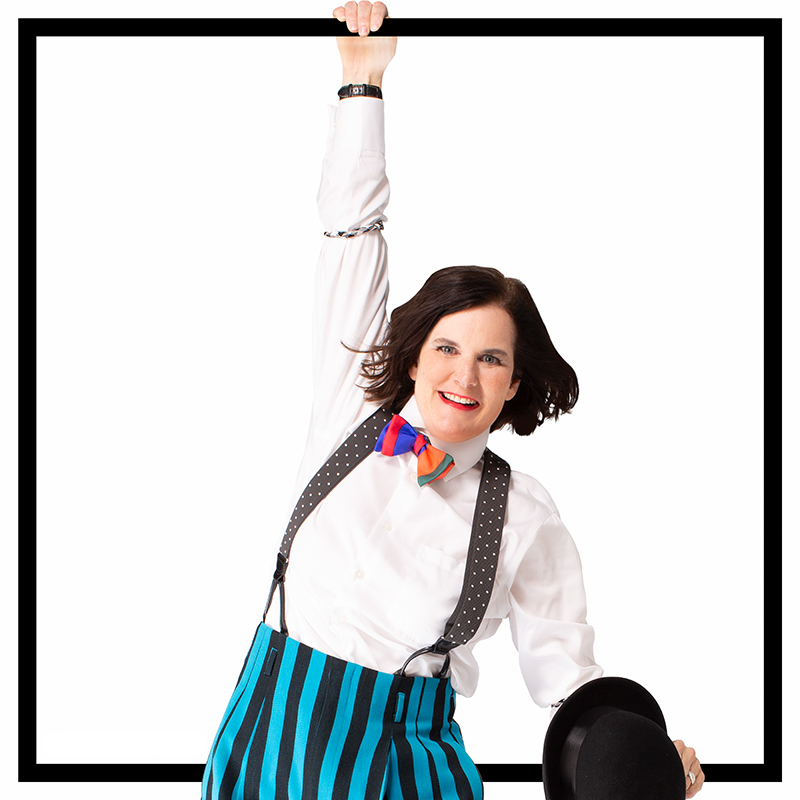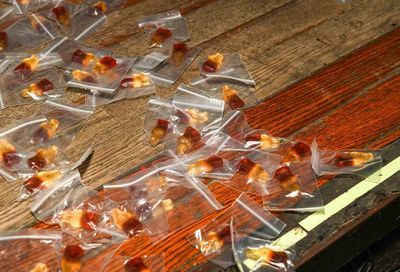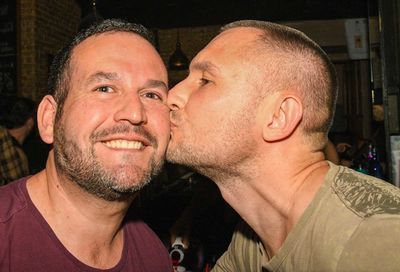A Fight on Many Fronts
Gay and lesbian groups fight back against a new wave of constitutional amendments
There may be plenty of gay people who don’t care much about getting married, but there is no question that marriage is an issue at the top of the ”gay agenda.” With that understanding, there is also no question that in the 2004 elections, the gay community got its collective ass kicked.
As James Dobson, head of the homophobic Focus on the Family organization, said in victorious style the day after President Bush was re-elected: ”The passage of the 11 marriage amendments, combined with similar measures passed thus far by six other states is the result of a tremendous grass-roots effort that has sprung up across the country.”
Repeatedly, every time a state constitutional amendment banning same-sex marriage has been offered to voters, they’ve eaten it up. The Human Rights Campaign puts the number of states with constitutional amendments banning same-sex marriage at 19.
Could the 2006 elections offer evidence that Dobson’s grassroots are withering? While local eyes are fixed on the proposed marriage amendment in Virginia, there are similar battles underway in seven other states this year: Arizona, Colorado, Idaho, South Carolina, South Dakota, Tennessee and Wisconsin.
Activists seem especially hopeful in Arizona, South Dakota and Wisconsin — and in Colorado, where voters will simultaneously face an anti-gay marriage amendment question as well as a referendum in favor of domestic partnerships. Of the proposed anti-gay measures, most are as sweeping as the proposed measure in Virginia, going beyond marriage to include other sorts of recognized partnerships. Polling supports activists’ optimism in Arizona and South Dakota, though no one is pointing to any guaranteed successes on Nov. 7.
|
”The one thing we all know is that in every one of these ballot initiatives, the GLBT community is the underdog,” says Roberta Sklar, of the National Gay and Lesbian Task Force. Sklar adds, however, that underdogs don’t always lose. To that end, the Task Force is coordinating its first Phone Home campaign, along with more than a dozen partner organizations such as Parents, Family and Friends of Lesbians and Gays (PFLAG) and the National Black Justice Coalition. The campaign is designed to put former residents of these battleground states in touch with the voters back home.
”People who come from these states and live elsewhere — say D.C. or New York — feel an enormous frustration being at a distance from their homes or places of origin. It feels like there’s no opportunity to do something effective,” Sklar says, explaining the Phone Home strategy of getting those hypothetical Washingtonians and New Yorkers on the phone lobbying family and friends back home to vote against the marriage amendments.
This flow of networking has worked in both directions, with state groups looking beyond their state borders for support. Fair Wisconsin, the group fighting that state’s proposed amendment was scheduled to hold a fundraiser at Halo on Oct. 17, after Metro Weekly deadline. D.C. Dakotans, a gay group, held a local fundraising event for South Dakotans Against Discrimination (SDAD) in September.
”When they found out something like this was happening in their home state, they wanted to help,” says Jon Hoadley, SDAD campaign manager. ”It was incredibly successful, raising money and awareness.”
While a success in any of these states on Nov. 7 would be an improvement over 2004, Sklar says that such success — or a new round of losses — should be measured relative to the larger overall push for gay equality: ”Everything does not rest on 2006 in regard to these ballot initiatives. The struggle for family recognition — for our families, for our civil rights — is a long struggle.”
Another angle to this year’s election battles is that the fight is helping some gay and gay-friendly activists get organized like never before.
”We’ve been running a movement based on building political power in the long term,” says Asha Leong of the South Carolina Equality Coalition (SCEC). In all likelihood, Leong will find herself on the losing side of the Nov. 7 ballot battle. But she’s confident they’ll win the war. ”Every dollar, every volunteer hour is spent not just on votes, but on the skill base we need here to stop similar bills. This is the first time since SCEC was formed that we’ve had an issue that’s united us in such a way.”
In that sense, between South Carolina’s energized activists, the new Phone Home campaign, and the rest, it seems there is already some good news coming out of Election Day 2006, regardless of where the votes may fall.
Support Metro Weekly’s Journalism
These are challenging times for news organizations. And yet it’s crucial we stay active and provide vital resources and information to both our local readers and the world. So won’t you please take a moment and consider supporting Metro Weekly with a membership? For as little as $5 a month, you can help ensure Metro Weekly magazine and MetroWeekly.com remain free, viable resources as we provide the best, most diverse, culturally-resonant LGBTQ coverage in both the D.C. region and around the world. Memberships come with exclusive perks and discounts, your own personal digital delivery of each week’s magazine (and an archive), access to our Member's Lounge when it launches this fall, and exclusive members-only items like Metro Weekly Membership Mugs and Tote Bags! Check out all our membership levels here and please join us today!
























